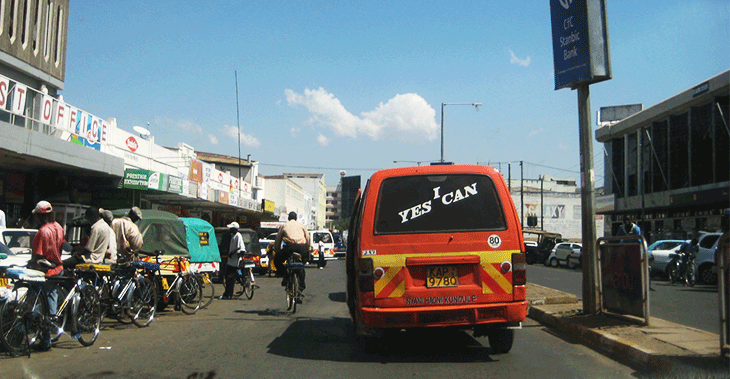The Health Policy Project ended in 2016. Work continued under Health Policy Plus (HP+) until 2022.
NEWS & VIEWS

Rebecca Mbuya-Brown, Health Policy Initiative
NAIROBI— As Kenya moves toward middle-income country status and away from a donor-dependent healthcare system, the country needs to explore alternative and sustainable health financing mechanisms. Sustainable healthcare financing would allow the country to expand and ensure widespread access to healthcare services and meet its development goals while protecting its citizens from devastating healthcare costs. In a recently released report, the USAID- and PEPFAR-supported Health Policy Project (HPP) presents the range of long-term, sustainable financing options available for healthcare in Kenya over the next 15 years.
Currently, financing for healthcare in Kenya comes from a variety of external and domestic sources. Domestic financing comes primarily from the government through tax revenue and the private sector, including out-of-pocket payments such as fees paid by patients for healthcare services. External sources include development partners and donors. While domestic sources are preferred, out-of-pocket payments can be devastating, pushing an estimated 1.48 million Kenyans below the poverty line each year. This new report, Healthcare Financing Options for Kenya: FY 2013/14 – 2029/30, explores options for Kenya to finance its health sector while protecting households from these “catastrophic” health expenses.
“The analysis found that internal resources could be a significant source for healthcare financing in Kenya,” commented Stephen Muchiri, program director, HPP/Kenya. “There is enormous potential for the country to mobilize domestic resources through social health insurance and tax revenue, moving the country closer to the ultimate goal of universal healthcare coverage.”
To increase domestic financing, the analysis recommends that Kenya reform its social health insurance program, the National Hospital Insurance Fund (NHIF); increase government expenditures on health; and reduce costs by allocating resources more efficiently.
“Based on our projections and anticipated epidemiological shifts, a rise in healthcare costs is inevitable,” said Muchiri. “The question is, ‘How can Kenya ensure its health sector is financed in a way that is more sustainable and less donor-dependent, while also protecting its citizens from the often catastrophic financial impacts of illness?’ I believe this analysis helps to answer those questions.”
What's New
- Something to Build On: “Innovation Exchange” Celebrates the Health Policy Project’s Close and a New Beginning
- What Will it Take for Tanzania to Achieve ART Targets and Ensure Long-Term Sustainability of the HIV Response?
- Helping Kenya’s County Leaders Advocate for Increased Health Investments
- HPP Holds Working Meeting on Ensuring Responsible PEPFAR Transitions for Key Populations
- Health Policy Project Celebrates 2016 International Women's Day
- HPP Staff Participate in White House Conference on HIV Stigma Reduction

